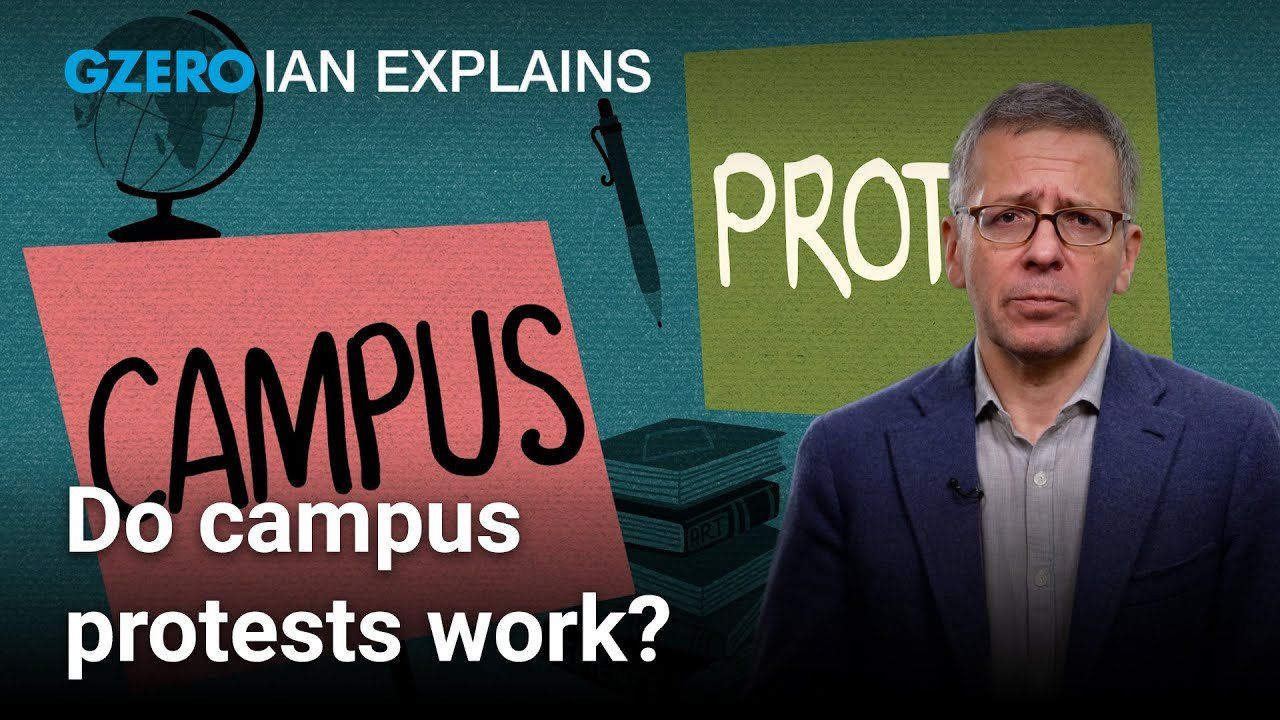
Have the student protests worked? College campuses nationwide have become protest hubs, echoing past movements demanding change. From Columbia to UCLA, students are pitching tents, occupying buildings, and clashing with police over Israel's actions in Gaza. The core demand: divestment from Israel. Whether it's cutting ties with Israeli donors or businesses, students are risking penalties to be heard, Ian Bremmer explains on GZERO World.
This activism mirrors the 1968 protests at Columbia, which targeted US involvement in Vietnam. Then, as now, divestment was a central demand, albeit from different sources. Some progress has been made; Brown and Northwestern students have reached agreements with administrators. Worldwide, youth are voicing discontent over Gaza.
However, not all support these protests. Some lament another disrupted commencement, while Jewish students feel marginalized and threatened. Can these efforts change US policy? President Biden's recent remarks suggest otherwise, as does Congress' recent passing of $15 billion in military aid for Israel. But Biden needs Gen Z's support for reelection. They have leverage, and they know it.